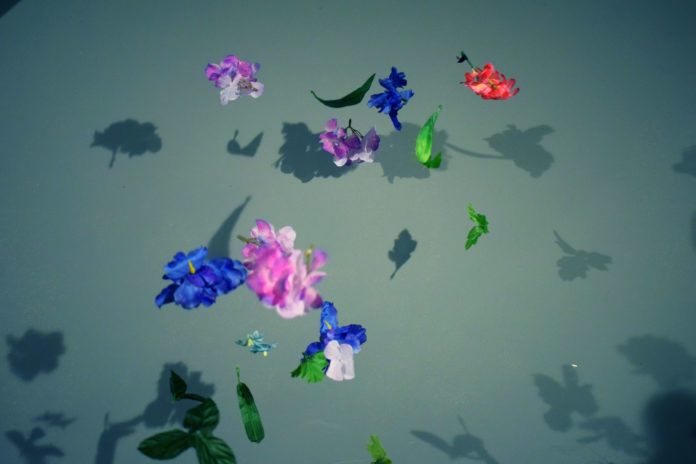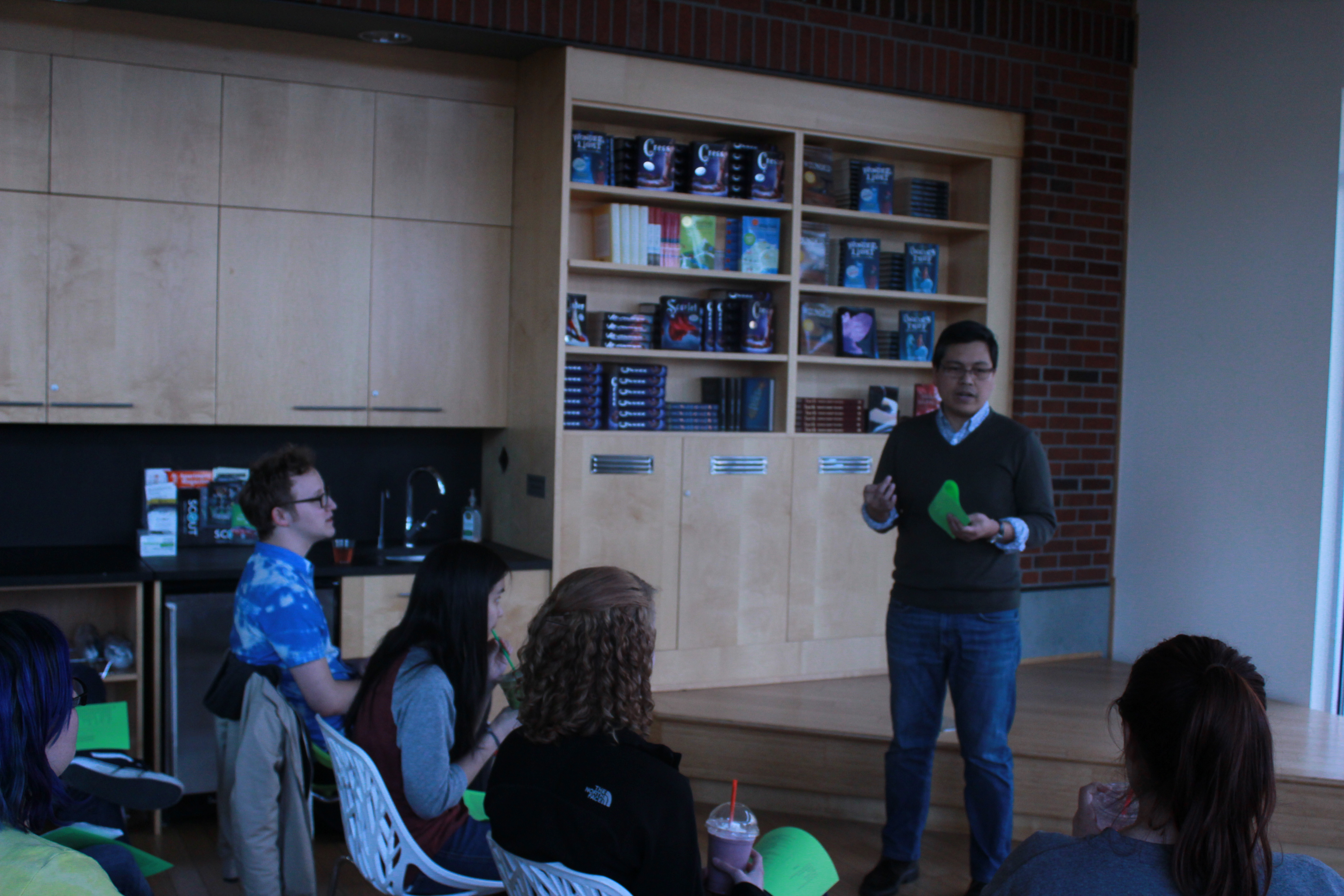COURTNEY MIRANDA; News Editor; mirandcs@plu.edu
Yet another academic year has restlessly come to an end. We’re probably not ready for finals, and we’re mostly stressed about the big projects we purposely procrastinated.
Every May, Pacific Lutheran University sends its seniors out into the real world, reflecting on their growth and celebrating how they’ll change the world one day. But in this article, I want to focus on the up and coming generation at PLU, that is changing our world right now.
We shuffle between our daily roles, performing one identity before shrugging it off and stepping into another. In this reflective moment, I want to highlight the specific ways in which the roles of student, person of color and woman have been transformed in the recent past at PLU.
The role of students
Reflecting on her past two semesters, first-year Yvonne Markub feels she truly found her place on this campus after realizing she had to create her own agency and community here. At first, the stark change between the diversity of her previous community and her new home at PLU felt like culture shock.
“It took awhile to adjust, but it wasn’t only about adjusting, it was about how I can actually take what I have and make it into something.”
A Tacoma resident for the past three years, Markub was born and raised in the Republic of Palau, a small Pacific island located next to Guam and the Philippines. Markub has found culture to be an essential pillar in her community. She explains to me that people flow in and out of communities, taking and leaving, but it’s important to intentionally embrace both, no matter how fleeting.
“As a person of color at a predominantly white institution, [the culture here at PLU] has transformed me and really crafted my leadership in terms of how I can advocate for myself,” Markub says.
Markub discovered that she learns best outside of the classroom. Her role as a student transformed from academics to discovering identity and community and how those intersect to create change on campus.
“I think it was more ‘what does a student look like to me?’ And how can I be also an independent, potential individual?”
Markub felt transformation in her role as a student and in her personal experiences as a person of color and a woman of color. She felt called to build a community for students who identified similarly. That construction process gathered a community founded in friendships and challenging each other to grow.
As a student, I think I always feel like there’s an obligation to make changes here on campus.”
-Yvonne Markub
“I think it was the leader in me [encouraging] to make changes. I had to really build my agency, but also look to where I can really be connected,” Markub reflects. “As a student, I think I always feel like there’s an obligation to make changes here on campus.”
Since coming to PLU, Markub has committed to a social work and political science double major, Hispanic studies and nonprofit leadership double minor.
“It’s a privilege coming into colleges and post-secondary education spaces. For me it was a way to showcase my identity and not letting other people suppress it, or the system that we have. It was like my way of closing those gaps.”
Markub’s value in education and being a student is easily exemplified in her commitment to learning.
In dialogue with first-year Carlos Alvarez, he describes to me how his role as student is one rooted in discipline and advocacy. As the Associated Students of PLU Finance Director, Alvarez often finds himself at the table with those who may not share the same values as him.
“It’s interesting to be part of an organization and be a kind of administrative unit as a student that’s involved in different parts of decision making processes as a student voice,” Alvarez explains. “[And] at the same time be part of an organization like the collective that pushes for racial equity on campus.”
It’s easy to categorize the student’s role as purely academic. Oftentimes as students we feel like our generation is the first to create a community rooted in inciting political change.
In my conversation with Dean of Inclusive Excellence Jen Smith reflects on her 12 years at PLU. She flashes a big smile at me while explaining that she followed her partner here for his job, claiming that her path to PLU wasn’t the most ‘feministy’, ignoring the obvious fact that she has been essential in the shaping of PLU’s ideas about equity.
“I don’t think I would say that students are more politically engaged than they were 12 years ago, but it manifests itself differently,” Smith explains.
Smith describes how the role of student has certainly become more visible, but that the student’s political engagement focus has simply shifted.
“It’s more centered on issues of racial justice and identity-based concerns,” insists Smith. “But 12 years ago, I think the student energy around sustainability and environmental justice was much more visible than it is now. That’s not to say it doesn’t exist, but that it’s visible differently.”
Smith comments on the evident correlation between the focus of student’s political engagement and bigger national events.
“It’s in response to broader social and cultural events which help give rise to particular kinds of voices and concerns. I think we’re reflecting on that.”
The role of students of color
Reflecting on how her role as a student of color has transformed in her two semesters at PLU, Markub finds that the role of student has manifested itself as a pathway to facilitate dialogue about identity and equity.
“It has definitely challenged me to become a leader, even when I don’t want to,” Markub chuckles. “It’s so important to have these conversations, to be uncomfortable in situations, because I know that eventually it will little by little create a change.”
Like Markub, Alvarez came from a diverse high school and felt a bit of culture shock upon entering PLU.
“I didn’t realize that I need a third space,” Alvarez muses. “It wasn’t until I was in a room with only students of color and we were just digesting and divesting from everything that I didn’t feel like I wasn’t in a place that was truly made for me.”
During our conversation, Markub describes how her culture and her identity as a person of color are intricately intertwined. Her culture, she explains, is something to be celebrated with community.
“Transformation as a person of color, culturally, has made me more proud of who I am and my culture as well,” Markub says. “Not just as a diversity step but as a celebration that should be seen a lot here. That’s what I try to do.”
Markub explains how her agency is rooted in the celebration of her culture as a person of color and a friend, embracing the exchange of knowledge.
“I’ve learned a lot about how the system plays and how I can navigate, but at the same time I’ve learned not to tend to other people’s feelings or tend to what they say I have to do because of the color of my skin.”
The role of gender
Over the past year a lot of national attention has been placed on the role of women and its transformation.
Markub’s time at PLU has allowed her to embrace her identity as a woman of color and find empowerment in that space.
“There’s a lot of burden on a woman, especially in today’s society, and so taking care of myself is something that I really learned here,” Markub says. “Women of color can heal and deserve self-care, self-preservation and time to do what’s best for them.”
Markub sees the transformative role of women by using her voice in predominantly male spaces.
“One of the things I’ve learned here is saying no when I don’t want to do it and not being afraid to speak up,” Markub says.
When thinking about the women’s transformation on campus, assessing the transformation of gender is just as necessary.
Smith reflects on the changes in how we think and talk about gender at PLU.
“I’ve seen the change definitely occur, and again we’re echoing things that happen nationally,” Smith says. “I definitely think PLU has generally been more responsive than some of our peer institutions in terms of making visible changes to reflect the evolution of gender as a category.”
While it’s important to recognize this transformation within PLU’s community, we certainly haven’t reached the end of the road.
“That’s not to say that we’ve solved the question of patriarchy,” Smith says with a laugh. “How we understand the role of women can only be understood through the transformation of how we talk about and think about gender at the university.”
Alvarez’s articulation about gender and self-awareness are manifestations of what a Lute is now in 2018.
“Gender is something that I keep in mind constantly,” Alvarez says. “I know that as a cisgender male I still have privileges that many of my female identifying friends don’t. So for me it’s important that I keep myself in check.”
The future
As we come to an end of an era for our seniors, we look forward to the future transformations of these particular roles.
“I hope that when I leave this place, it transforms this community, that people can be open and recognize other people’s humanity,” Markub says.
With what feels like a long, winding future ahead, Markub understands that people can be uncomfortable having dialogues about these roles and the transformations they’ll incur.
“For people of color, their rights and humanity and dignity are not considered in the first place and they have to continuously fight for it, and work ten times harder,” Markub says.
Alvarez looks forward to creating a space for sustainable leadership on campus.
“When you reflect on what the seniors have brought and who they are as they leave, you can’t replace them, so you have to find new types of leadership,” Alvarez insists. “Keeping it sustainable, opening spaces for other individuals to also have a voice and making sure that you’re continuing that cycle.”
Smith offers a different perspective as an educator. She is privy to the ebb and flow of an ever-changing community and with that, their experiences.
“I didn’t realize that I need a third space,” Alvarez muses. “It wasn’t until I was in a room with only students of color and we were just digesting and divesting from everything that I didn’t feel like I wasn’t in a place that was truly made for me.”
“One of the things I hope for in terms of transformation is that is doesn’t stop, that it is ceaseless,” Smith says. “That we are an ever evolving institution and the roles of the people who make up the institution are also always and perpetually evolving.”
Smith hopes that PLU can come together despite difference and foster a community of transformation and growth.
“My hopes for all of those individuals and for folks who sit within a variety of privileged identities is that we continue to evolve together and that we embrace the tensions that this is inevitably going to create, but also embrace the opportunities for dynamic conversations,” Smith says.
Smith describes to me the value that PLU puts on transformative education for students, encouraging PLU to think about transformation as central to the institution.
“How can we think about the institution itself as being transformed by its students as well as its faculty and staff? How we can think about transformation in a more self-consciously symbiotic way, is probably what I would hope for,” Smith says.
At this time in the semester, when we’ve thrown self-care to the wayside, take a moment and look over your shoulder to embrace the changes made and celebrate the accomplishments. Transformation blooms within everyone and often sleeps peacefully, undetected and undisturbed.


















